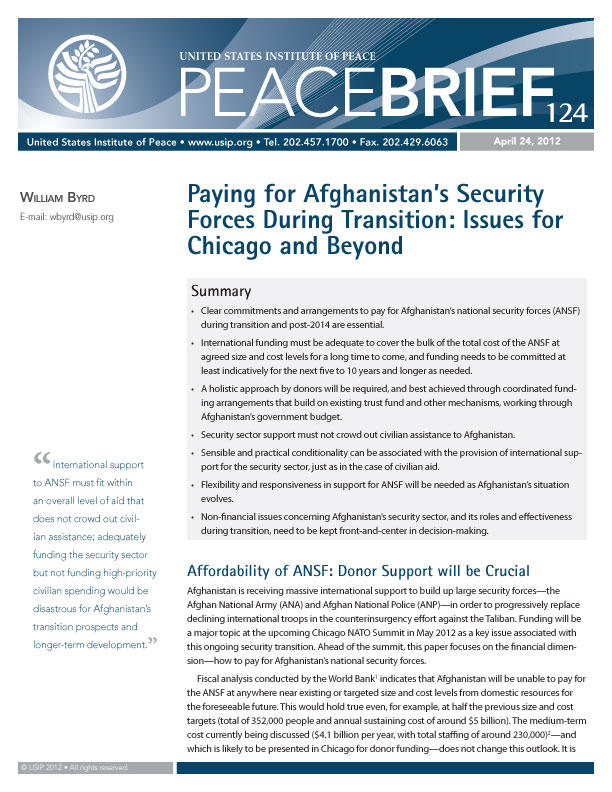This report reflects the authors' research interests and several publications on security sector reform from a financial and development perspective. It is intended to lay out key issues and trade-offs in this area, and brings in concepts and tools of public financial management which are applicable to the security sector.

Summary
- Clear commitments and arrangements to pay for Afghanistan’s national security forces (ANSF) during transition and post-2014 are essential.
- International funding must be adequate to cover the bulk of the total cost of the ANSF at agreed size and cost levels for a long time to come, and funding needs to be committed at least indicatively for the next five to 10 years and longer as needed.
- A holistic approach by donors will be required, and best achieved through coordinated funding arrangements that build on existing trust fund and other mechanisms, working through Afghanistan’s government budget.
- Security sector support must not crowd out civilian assistance to Afghanistan.
- Sensible and practical conditionality can be associated with the provision of international support for the security sector, just as in the case of civilian aid.
- Flexibility and responsiveness in support for ANSF will be needed as Afghanistan’s situation evolves.
- Non-financial issues concerning Afghanistan’s security sector, and its roles and effectiveness during transition, need to be kept front-and-center in decision-making.
About this Brief
William Byrd is a development economist with long experience at the World Bank and has worked extensively on Afghanistan in various capacities over the past decade. During 2002-2006 he was stationed in Kabul, Afghanistan, where he served as the World Bank’s country manager for Afghanistan and then as economic adviser. He recently joined USIP as a senior expert in residence.
This report reflects his research interests and several publications on security sector reform from a financial and development perspective. It is intended to lay out key issues and trade-offs in this area, and brings in concepts and tools of public financial management which are applicable to the security sector. The views expressed in this brief do not necessarily represent the views of the U.S. Institute of Peace, which does not take policy positions.